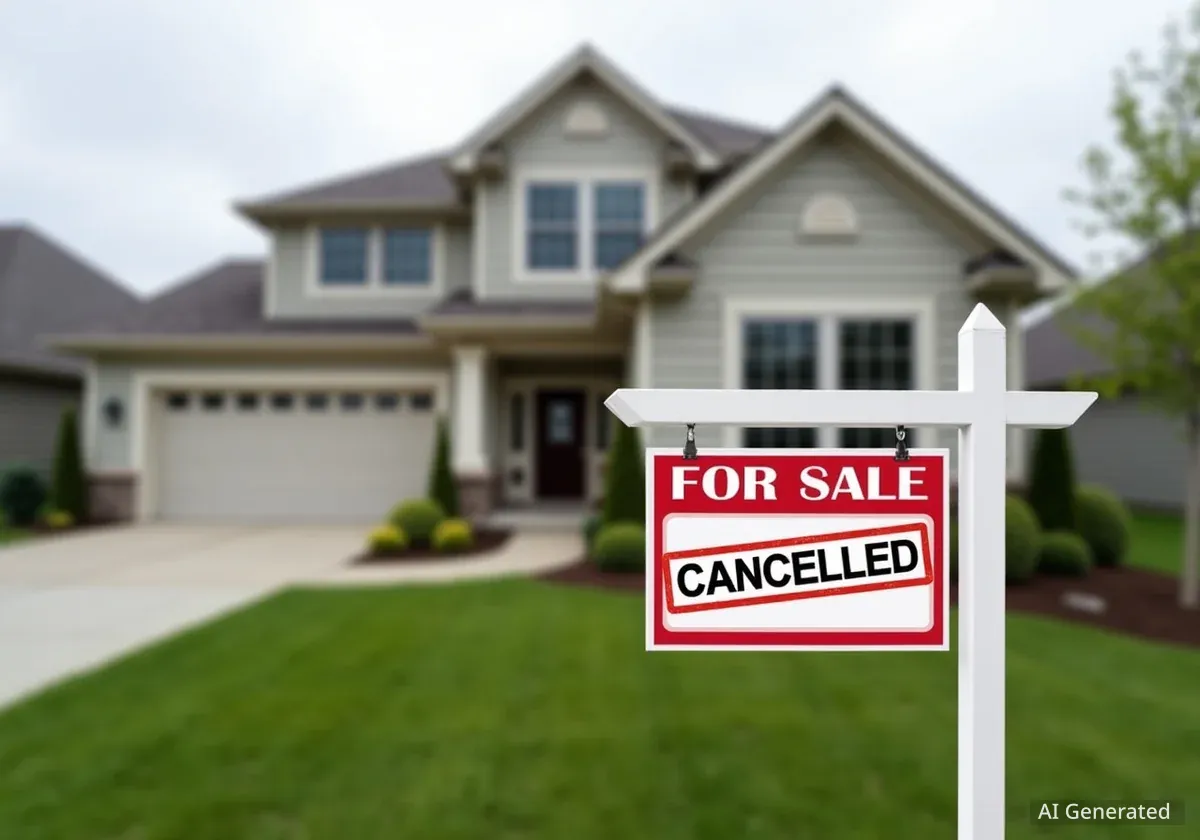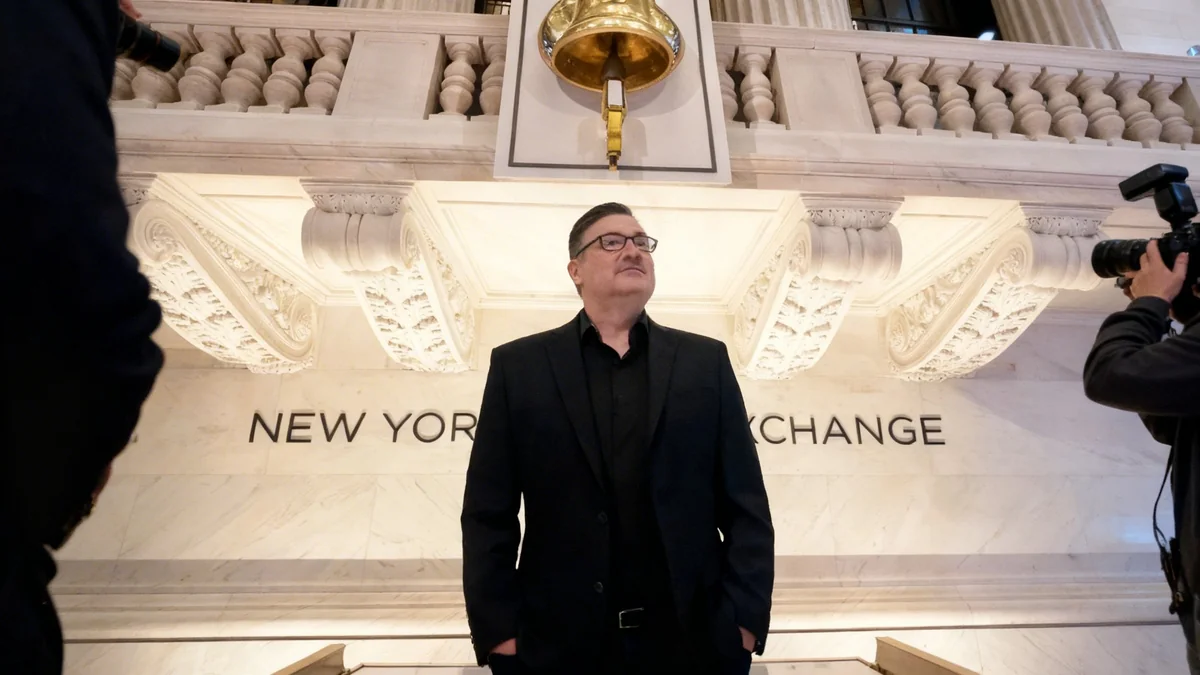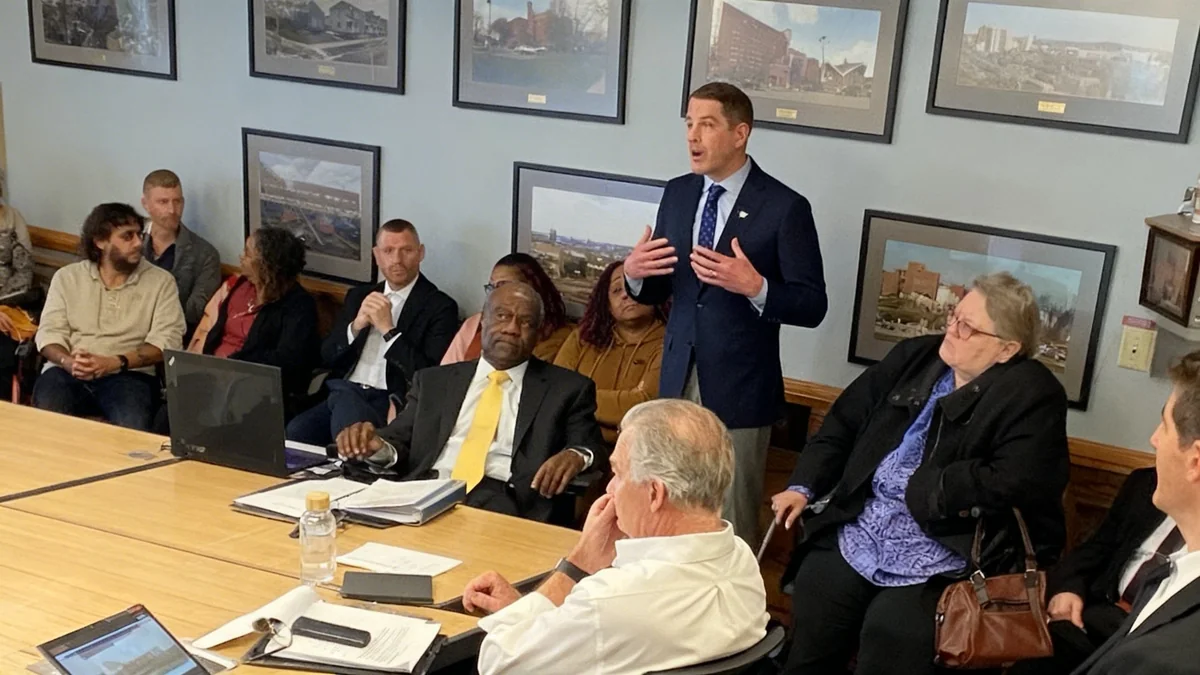A record number of home purchase agreements in the United States were canceled in August, signaling a significant shift in the housing market. According to a new report from real estate firm Redfin, approximately 56,000 deals fell through, representing 15.1% of all homes that went under contract during the month. This marks the highest cancellation rate for August since Redfin began tracking the data in 2017.
Key Takeaways
- In August, 15.1% of U.S. home purchase agreements were canceled, the highest rate for that month in at least eight years.
- Home inspection and repair issues were the primary reason for cancellations, cited by over 70% of real estate agents.
- The market has shifted in favor of buyers, who now have more negotiating power due to an oversupply of sellers.
- States like Florida and Texas, which experienced pandemic-era building booms, are seeing some of the highest cancellation rates.
A Shift in Market Power
The recent surge in canceled contracts highlights a fundamental change in the U.S. housing market. The power has moved from sellers to buyers, creating a new dynamic that contrasts sharply with the competitive frenzy of 2020 and 2021. Redfin's analysis indicates that there are approximately 500,000 more sellers than buyers in the current market.
This imbalance gives house hunters greater leverage. Buyers are increasingly asking for concessions, such as price reductions and seller-covered repair costs. However, many sellers are struggling to adapt to this new environment, leading to stalemates in negotiations and, ultimately, canceled deals.
From Seller's Market to Buyer's Advantage
During the post-pandemic housing boom, low inventory and high demand created intense bidding wars, often forcing buyers to waive contingencies like inspections. Today, with higher mortgage rates and increased housing supply, buyers can be more selective and demanding, reintroducing standard negotiation practices that were largely absent in recent years.
Why Deals Are Falling Through
To understand the root causes of these cancellations, Redfin surveyed its real estate agents. The findings show that disagreements over the physical condition of homes are the biggest obstacle to closing a deal.
According to the survey, the top reasons for purchase agreements being terminated were:
- Home inspection or repair issues: 70.4%
- Buyer financing problems: 27.8%
- Buyer's inability to sell their current home: 21.0%
- Changes in a buyer's financial situation: 14.9%
- Buyer finding a different preferred house: 12.9%
The data suggests that while financing remains a hurdle, the primary point of friction is the physical state of the property. Buyers are no longer willing to overlook necessary repairs, and sellers are often unwilling to cover the costs.
Economic Headwinds Impacting Buyers
A recent Fannie Mae survey revealed significant economic anxiety among Americans. Nearly 70% believe the economy is on the wrong track, and 73% feel it is a bad time to purchase a house, contributing to buyer hesitation and a lower tolerance for risk.
Geographic Trends and Seller Reluctance
The trend of canceled contracts is not uniform across the country. Many of the cities with the highest cancellation rates are located in Florida and Texas. These states saw a massive influx of residents during the pandemic, which spurred a significant home-building boom. Now, the resulting increase in housing supply is giving local buyers more options and more power.
At the same time, many sellers are anchored to the high valuations of the recent past. "Some are having a hard time adjusting to the reality that it’s no longer a seller’s market," Redfin noted in its report. This disconnect in expectations is a major source of conflict during negotiations.
Dawn Liedtke, a Redfin real estate agent in Tampa, shared an example of this dynamic.
"I worked with one seller who received 78 repair requests from a buyer following the inspection, and that was after the seller had already agreed to lower their $375,000 asking price by $25,000," Liedtke explained. "The buyer came back and said they would handle the cost of the repairs, but only if the seller was willing to lower the price by another $100,000. The deal didn’t work out."
Broader Market Implications
The rise in cancellations is a symptom of a broader cooling in the housing market. High homeownership costs, driven by factors like elevated mortgage rates and soaring insurance premiums in disaster-prone states like Florida and California, are weighing on affordability.
Despite a recent nine-week consecutive drop in the average weekly mortgage rate, pending home sales still fell in September for the first time in nearly three months. This indicates that lower borrowing costs alone may not be enough to reinvigorate demand.
With both buyers and sellers feeling the pressure of a challenging economic environment, the U.S. housing market is on pace for its worst year for sales since 1995. The increase in canceled contracts shows that even when a deal is reached, the path to closing is more uncertain than it has been in years.





